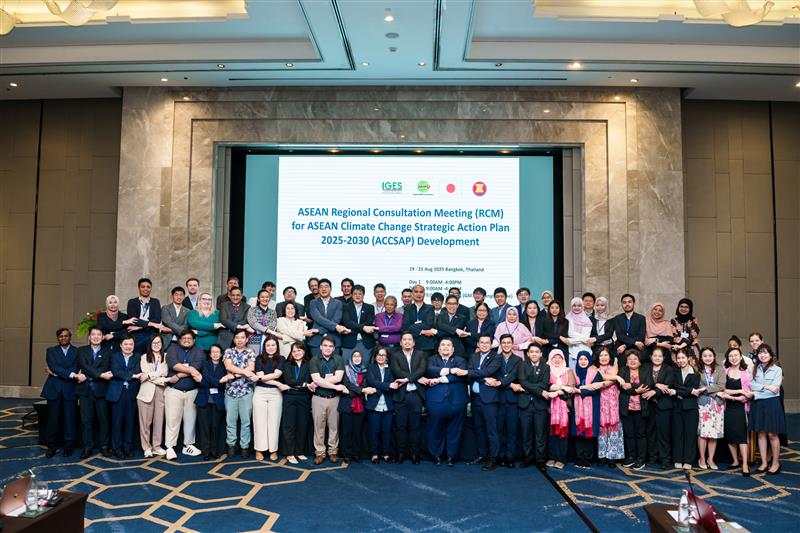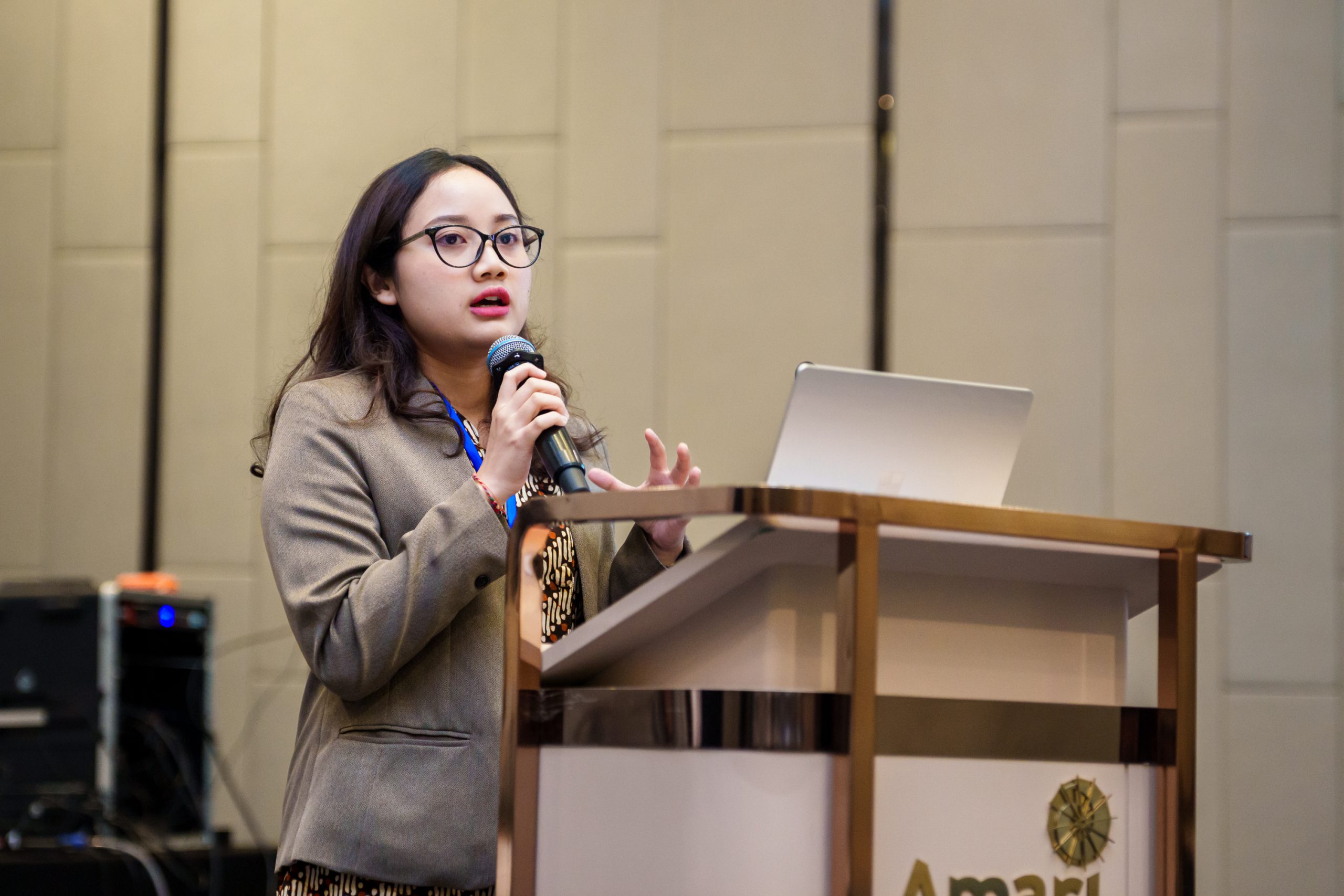Bangkok, 19-21 August 2025

Photo 1. Aldilla Noor Rakhiemah, Project Manager of ACCEPT II is Presenting during ASEAN-RCM for ACCSAP Development 2025-2030.
Bangkok, 19-21 August 2025 – The ASEAN Climate Change and Energy Project (ACCEPT) is the first integrated initiative addressing the energy–climate nexus in ASEAN. In its second phase, ACCEPT II aims to support the implementation of the ASEAN Plan of Action for Energy Cooperation (APAEC), the regional blueprint for the energy sector. On 19–21 August 2025, the ACCEPT Team participated in the ASEAN Regional Consultation Meeting (RCM) for the development of the ASEAN Climate Change Strategic Action Plan (ACCSAP) 2025–2030 in Bangkok, Thailand. ACCSAP will serve as ASEAN’s roadmap for guiding the region’s long-term transition toward resilience and net-zero. Day 1 of the meeting focused on gathering recommendations from ASEAN Member States (AMS) and discussing regional cross-cutting issues; Day 2 explored perspectives and the way forward for ACCSAP; and Day 3 featured a technical dialogue to scope research areas for the ASEAN Centre for Climate Change (ACCC).
On 21 August 2025, Aldilla Noor Rakhiemah, Project Manager of ACCEPT II was invited to deliver a presentation. She introduced the ASEAN Centre for Energy (ACE) as the intergovernmental organisation mandated to advance regional energy cooperation under the ASEAN Community framework. She highlighted APAEC as the sector’s guiding policy document and underlined the theme for the upcoming APAEC 2026–2030 cycle: “Advancing Regional Cooperation in Ensuring Energy Security and Accelerating Decarbonisation for a Just and Inclusive Energy Transition.”
With decarbonisation now at the forefront of ASEAN’s energy agenda, Aldilla stressed the importance of ensuring consistency between energy policies and climate commitments. She also emphasised the growing relevance of cross-sectoral issues, including financing and investment, the blue economy, carbon markets, climate change, and gender equality, disability, and social inclusion (GEDSI).
“ACCEPT II will continue connecting the energy and climate sectors through upcoming activities, including high-level policy dialogues, workshops, and publications, while ensuring that no one is left behind during the transition,” she stated, further highlighting ACE’s ongoing energy – gender initiatives.
In relation to the establishment of the ASEAN Centre for Climate Change (ACCC), Aldilla identified five areas of potential collaboration: (1) policy alignment and strategic frameworks; (2) carbon markets and finance; (3) cross-sectoral and inclusive approaches; (4) capacity building, knowledge sharing, and data; and (5) international and regional cooperation. In addition, she conveyed that such collaboration must ensure consistency between energy policies and climate targets, supported by coherent strategies and frameworks.

Photo 2. Indira Pradnyaswari, Research Analyst of ACCEPT II presented RCCM Recommendation for ACCSAP on Track 9: Science, Technology, and Private Sectors
In another session, Indira delivered a presentation on sectoral approaches to tailoring regional climate targets. The session provided specific recommendations on the ACCSAP framework and its contents, including implementing agencies, funding sources, and coordination arrangements. The discussions were divided into ten tracks, with Indira focusing on Track 9: Science, Technology, and Private Sectors. Her presentation was structured into three parts: (1) ASEAN Regional Cooperation Actions; (2) Practical Indicators; and (3) Harmonisation of ACCSAP with other strategies or action plans.
Indira recognised ASEAN’s progress in climate action, including the establishment of the ASEAN Working Group on Climate Change, APAEC, national roadmaps, and feasibility studies on low-carbon technologies. However, she also identified persistent challenges: limited involvement of relevant ministries and stakeholders, implementation delays, financial and maintenance constraints for technology adoption, and insufficient regional data to support evidence-based policymaking
She concluded that aligning low-carbon technologies with existing ASEAN frameworks is essential to accelerating climate action, strengthening regional energy security, and advancing net-zero ambitions. Expanding initiatives like ACCEPT, she noted, will further enhance coordination mechanisms while ensuring alignment with sectoral stakeholders. She also underscored the importance of inclusive action, particularly through active private sector participation.
(IP)
**
Join our ASEAN Researchers Network on Climate Change (ARNECC) by registering yourself here. Become a part of our collaborative efforts to address pressing climate challenges and shape a sustainable future.
Detailed information on ACCEPT II can be found at https://accept.aseanenergy.org/
Follow our social media to stay updated on ASEAN’s energy-climate nexus and ACCEPT activities.